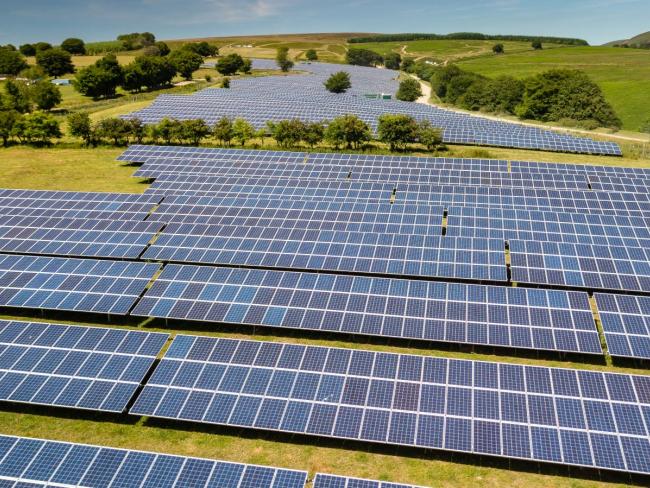26 August 2024

A solar generation power plant in South Wales. New sites will be much larger. Photo Richard Whitcombe / shutterstock.com.
The new government lost no time in continuing the policy of its predecessor on large scale solar farms in the name of net zero. The only difference is that Labour says it can be more decisive. Plans are being pushed through despite opposition and with no debate.
The incoming energy secretary, Ed Miliband, soon approved three massive new solar farms in the east of England – Gate Burton in Lincolnshire, Mallard Pass in Rutland and Lincolnshire and Sunnica which bridges the Cambridge/Suffolk border.
Not happy
The total area of these three sites is over 7,000 acres, about twice the size of London Heathrow airport. The claim is that the three newly approved sites could power “more than 400,000 homes” with a nominal capacity of 1.4 GW. Even so local people were not happy with Miliband’s decision.
Opponents of the Sunnica development hoped to launch legal action, building on strong local opposition. But as two of the four local councils pulled out of a judicial review on 21 August, it’s now unclear how the campaign can continue.
Reality
Groups objecting to the Mallard Pass and Gate Burton developments are in a similar position – generally accepting the need for solar power but unable to effectively challenge government when the reality of the scale of land use and transformation becomes clear.
Many other developments have already been approved or are in planning. The latest solar farms will be far larger than those already built. Construction began on Project Fortress in north Kent last year, with a planned capacity of over 350 MW, almost five times greater than the largest existing British solar farm, at Llanwern near Newport.
Consent
The Labour devolved administration in Wales is supporting a 3,000 acre solar farm with a similar capacity at Maen Hir on Anglesey which Lightsource bp, now fully owned by BP, wants to build. Large projects like this need consent from the UK government, which it is likely to grant.
And even bigger developments are on the way. Botley West on Oxfordshire has a proposed capacity of 840 MW, to be built on 3,200 acres of green belt and prime farmland. This is dressed up in promises of clean, affordable energy, but local objectors are not convinced.
Concern
Local opposition to the scale of such solar farms – and associated battery storage – is common. People are concerned over the loss of so much high quality agricultural land as well as the loss of amenity and environment. There are also serious doubts over promises to invest in skills, education and jobs, which have not materialised with earlier solar schemes.
‘The development of solar farms in the name of net zero targets is at the expense of food security.’
The development of solar farms is in the name of net zero targets and energy security, but it’s at the expense of food security, taking up valuable farmland. Miliband’s view, in line with the energy strategy set by the Conservative government, is that the need for renewable power supplies outweighs the loss of food production.
Legal
Unsurprisingly the renewal energy lobby represented by Solar Energy UK says that solar power is no threat to food production. Farming and agricultural organisations disagree. But the government’s mind is made up, as it stands by the legal commitment in the Climate Change Act 2008.
The previous government had a target of 70 GW installed solar capacity by 2035, up from an initial target of 16 GW. Labour says it will treble the amount of solar generating capacity installed. That looks as if it’s yet another case of the new government promising to do what’s already on its way.
But the risk is that it is even less likely than the last one to listen to challenges to net zero dogma as it emphasises “fully decarbonising” electricity generation – “zero” not “net zero” – and is disregarding of the consequences and practicality. It is likely to fail to achieve energy security for Britain and to damage our food security in the process.
